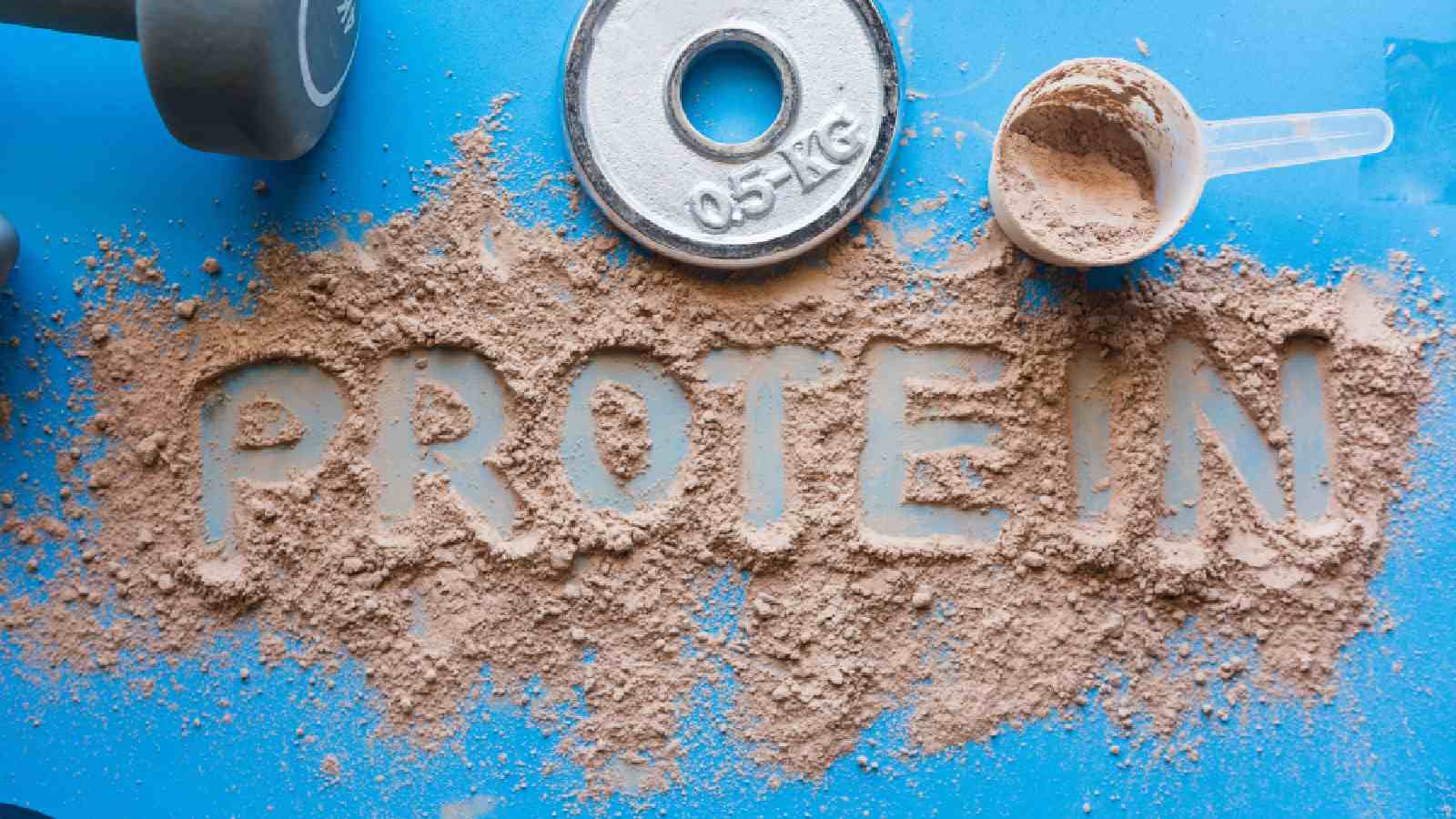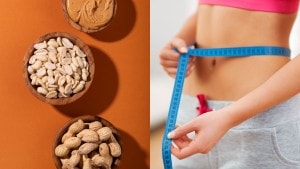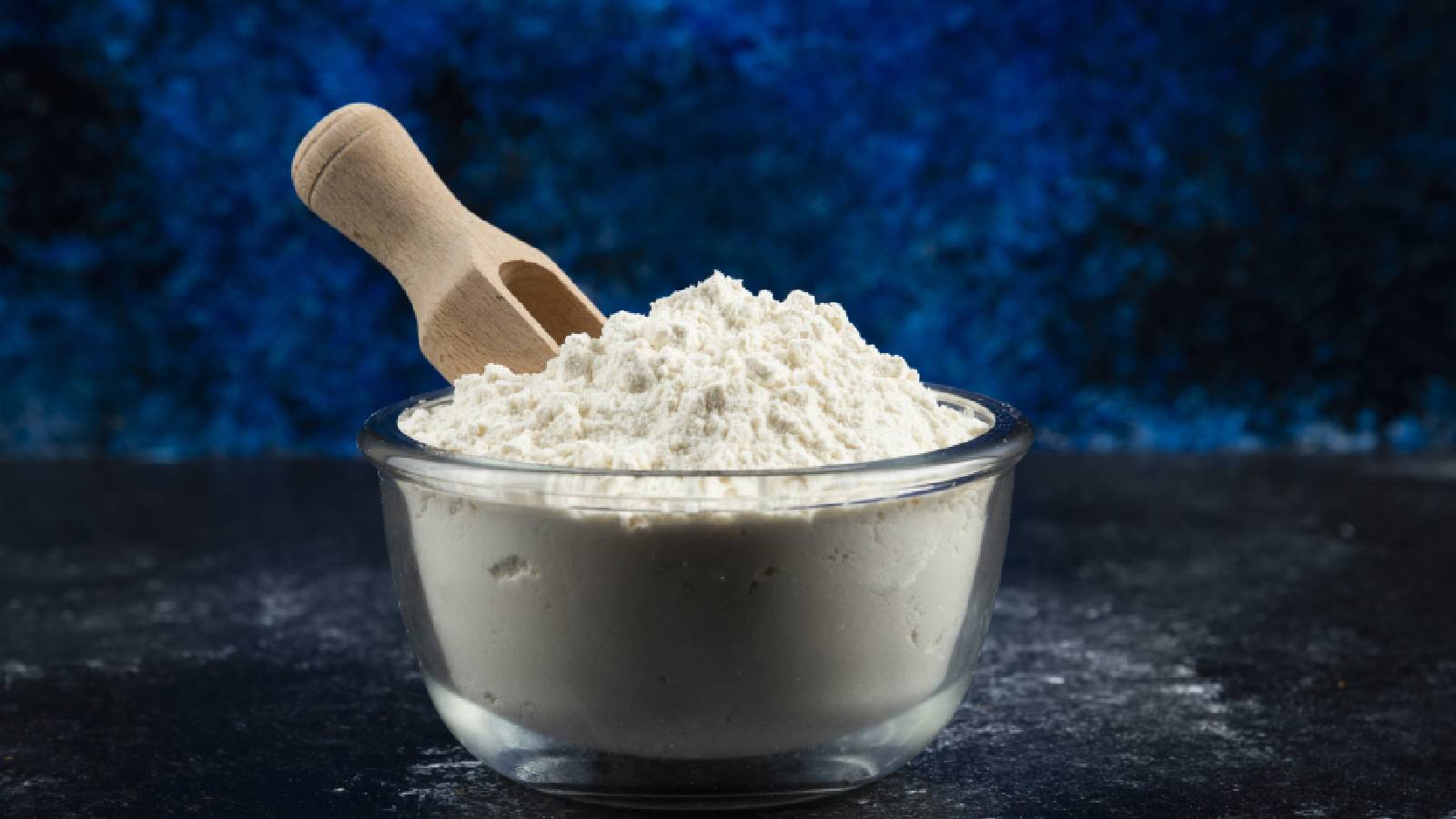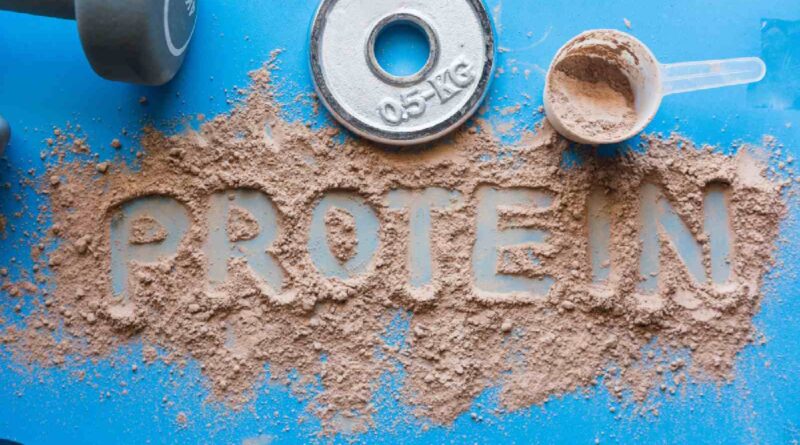Protein vs creatine: Which supplement is better for muscle gain?
Creatine and protein powder are supplements that fitness enthusiasts use before or after exercise. Find out if protein is better than creatine for muscle gain.
Creatine and protein are two supplements that many fitness enthusiasts swear by. They are great for building muscle, boosting performance, and supporting overall health. Protein powder can improve the body’s ability to repair and build muscle tissue after intense exercise, leading to increased muscle mass over time. Creatine, on the other hand, draws water from the muscle cells, and on the other hand, increases the volume of the cells. It actually promotes the perfect environment for muscle growth, so it can contribute to muscle hypertrophy. Does that mean creatine is better than protein for muscle gain? Let’s find out who the winner is in this protein vs creatine debate.
What is protein powder?
“Protein powder is a nutritious food designed to provide a lot of protein in a simple and easy-to-use form,” says nutritionist Susmita N. Such powders are taken from various sources. The most popular sources include:
- Whey protein is extracted from milk during the cheese making process.
- Casein protein from milk.
- Soy protein extracted from soybeans.
- Pea protein made from split yellow peas.
- Rice protein from brown rice.
- Hemp protein extracted from hemp seeds.
- Egg protein is made from egg whites.

What are the health benefits of protein powder?
Protein powder is a versatile and convenient supplement that offers many health benefits:
1. Muscle growth and repair
Protein supplementation can lead to enhanced muscle function in adults, according to a 2019 study published in the journal Nutrients. “Protein is important for muscle protein synthesis, which is the process by which the body repairs and rebuilds muscle fibers after exercise. Using protein powder, especially after exercise, provides the amino acids necessary to facilitate this process, which leads to muscle hypertrophy (growth),” says the expert. After’ of intense exercise, the muscles experience less stress and tears. Protein powder helps to speed up the repair process, reduce recovery time and reduce muscle soreness.
2. Losing weight
In a 2019 study published in the journal Nutrients, women who had 40 grams of whey protein per day showed a reduction in abdominal fat compared to other participants who consumed another type of protein supplement. . Adding protein powder to meals or snacks can increase feelings of fullness, reduce overall calorie intake and aid in weight loss efforts.
3. To strengthen the immune system
The use of whey protein can improve the immune system and reduce the rate of diseases, as research published in the journal Foods in 2021. against viruses.
4. Support for healthy aging
Protein supplementation can improve muscle mass and reduce the risk of sarcopenia in older adults, according to research published in the Canadian Geriatrics Journal in 2022. “Sarcopenia is an age-related loss of muscle mass as well as strength, but it is “The protein intake can be reduced. This can help the elderly to keep walking and be independent,” says the expert.
You can also like


5. Psychological benefits
Susmita says: “Amino acids from protein are precursors for neurotransmitters, which are important for brain function, emotional regulation and cognitive function.” Consuming protein, especially in the morning or before mentally demanding activities, can improve concentration and mental performance by providing sustained energy.
What is creatine?
Creatine is one of the most widely used dietary supplements in the fitness world. The expert says: “It is a natural compound, which plays an important role in energy production, especially when you are doing things like lifting weights and sprinting.” Other natural sources of creatine include:
- Beef and pork
- Salmon, tuna and herring
- Chicken
- Milk and cheese
What are the benefits of creatine?
Creatine provides many benefits for your health, including:
1. Muscle strength
Creatine phosphate stored in the muscles provides a phosphate group to ADP or adenosine diphosphate) to regenerate adenosine triphosphate or ATP, the main source of cellular energy. “High levels of ATP help the muscles to work at a higher intensity for longer periods of time. This results in improved strength and energy production during activities such as weight lifting, and long-term training, “says the expert.
2. Increased muscle mass
Creatine supplementation is an effective way to increase muscle mass in healthy adults, according to research published in the journal Nutrients in 2022. Creatine causes muscles to retain water, increases muscle tone and creates a healthy environment. for muscle growth.
3. Improved exercise performance
With an enhanced presence of energy, people can sustain higher training, contributing to greater training growth and subsequent performance improvement. Creatine supplementation is particularly beneficial for sports and activities that require short bursts of intense effort, such as sprinting, jumping and powerlifting.
4. Quick recovery
Lower levels of inflammation after exercise can lead to faster recovery times. The expert says: “This can enable people to exercise consistently without resting for a long time.
5. Psychological benefits
Supplemental use of creatine can improve short-term memory and intelligence or reasoning in healthy people, as research published in Experimental Gerontology in 2018. Parkinson,” says the specialist.
6. Support for bone health
During a 2021 study published in the journal Medicine and Science in Sports and Exercise, one year of natural supplementation and resistance training had positive effects on muscle tension in adults. Susmita says: “By increasing strength and muscle mass, creatine indirectly supports bone strength by adding strong muscle to bone tissue.”
Should you take a protein or creatine supplement for muscle gain?
Both protein and creatine can support muscle gain, but they work in different ways:
- Protein: If your goal is muscle repair, recovery and growth, protein is important because it provides the amino acids needed to build muscles. Without enough protein, muscle gain will decrease, regardless of the intensity of the exercise.
- Creatine: If your goal is to increase strength, power, and exercise performance, creatine will help you more than strength training, which leads to faster gains in muscle mass.

As for protein vs creatine, you can find out which one is better by following the following points:
1. Basic plan
Protein powder is designed for muscle repair and growth, and to meet daily protein requirements. Creatine is very effective for improving energy production for high-intensity exercise.
2. Method of operation
Protein powder provides amino acids for muscle protein synthesis. Creatine increases phosphocreatine stores to regenerate ATP.
3. Best for
Protein is for people who want to build muscle, recover, or eat more protein. Creatine is for people who want to improve strength, power, and maximum performance, especially in sports.
4. Standard measurement
People can take 20 to 30 grams of protein powder per serving, one to two times a day. Three to five grams of creatine can be consumed daily after the optional loading phase.
5. Time of use
Protein powder can be consumed after exercise, between meals, or as a dietary supplement. Creatine can be taken before or after exercise, or at any other time throughout the day.
“You can take creatine and protein together, since they work in the same way without interfering,” says the expert.
What are the side effects of protein and creatine supplements?
Here are some of the side effects of protein powder –
- Some people, especially those who are lactose intolerant (for whey protein), may experience bloating, gas or stomach upset.
- Eating too much protein over a long period of time can stress the kidneys, especially in people with pre-existing kidney conditions.
- High protein intake requires adequate hydration to work, so not drinking enough water can cause dehydration.
Here are the effects of creatine –
- Creatine causes muscles to retain water, which can result in swelling or temporary weight gain.
- Some people may experience stomach upset or diarrhea.
- Excessive use of creatine can cause stress on the kidneys, although this risk is minimal in healthy people.
#Protein #creatine #supplement #muscle #gain
